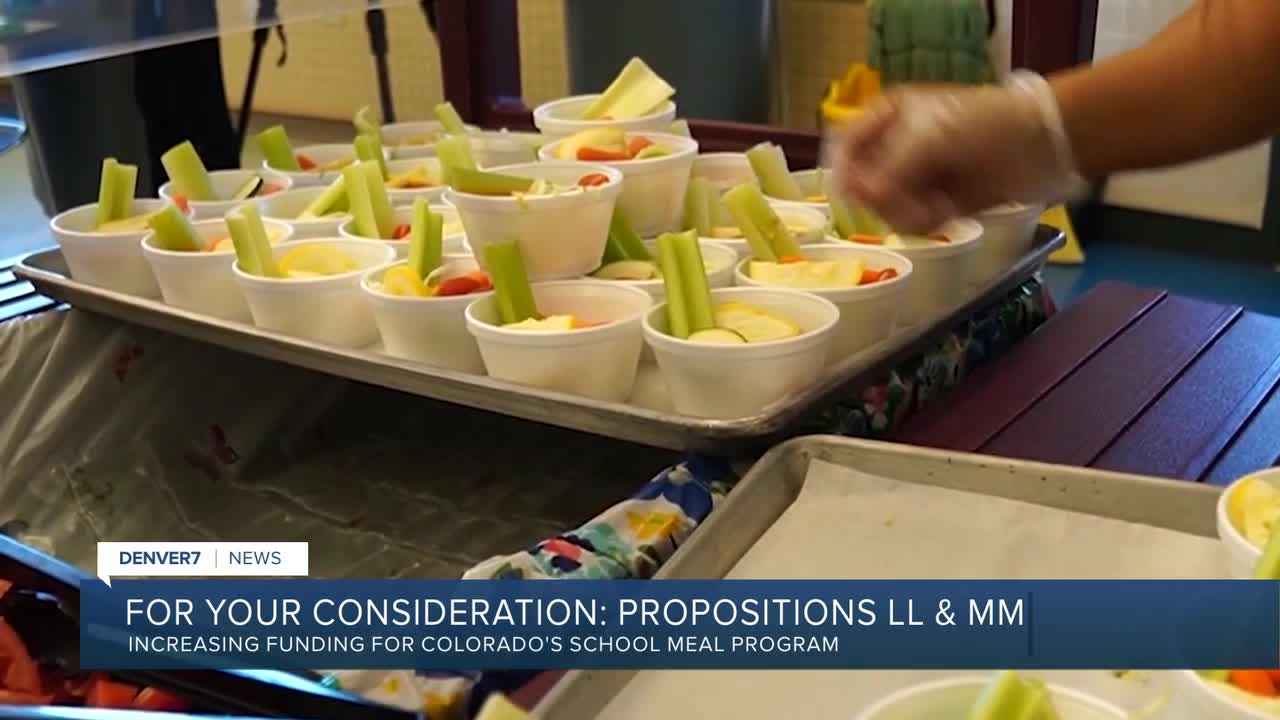DENVER — It's been three years since Colorado voters approved Proposition FF, offering free breakfast and lunch to all students regardless of their family's income through the Healthy School Meals for All program. This November, voters will get to decide the future of the program.
“The school cafeteria really is a happy place, and students are always really happy to try new things and to have that meal,” said Chef Taylor Frederick, culinary programs manager for Nourish Colorado, a Denver nonprofit.
During his time with the nonprofit, Frederick tells Denver7 he has seen the impact that the Healthy School Meals for All program has had on students, especially with the rising cost of food.
“We've seen very, very high participation, and we've seen that translate into the classroom with attention and attendance, and also the quality of the meals has really gone up with their access to local foods,” he said.
It's why Nourish Colorado is part of a large coalition of groups called Keep Kids Fed Colorado, which is supporting Propositions LL and MM this November.
The two statewide ballot initiatives have to do with increasing funding for the Healthy School Meals For All program.

Politics
What's in this year's Blue Book? Your guide to Colorado's November 2025 election
Proposition LL would allow the state to retain the excess funds already collected during the first year of the program. Proposition MM would increase state taxes for households making over $300,000 a year.
The extra $570 a year generated per household would be used to offer free meals to all public school students and to fund grant programs previously approved by voters that have not yet been implemented.
While no groups oppose the measure, the Common Sense Institute — a conservative think tank — is raising concerns about both propositions, arguing that the Healthy School Meals program spends more than projected, and that neither ballot measure addresses the program’s spending levels.
“I think voters have some important decisions to think about this fall, and how they want pretty limited state dollars to be spent,” said executive director Kelly Caufield. “Do we support more expansions of a program so that more students can benefit from free meals, or would we rather have that money refunded back to taxpayers so that they can decide their family's priorities and spend the refunded money in a way that might meet the needs of their family?”
So what's next?
If Proposition LL fails and MM passes, free school meals will continue to be offered to all. The same applies if they both pass.
If Proposition LL passes and MM fails, free meals will only be offered to low-income schools and qualifying students in all other schools. The same applies if they both fail.





Denver7 is committed to making a difference in our community by standing up for what's right, listening, lending a helping hand and following through on promises. See that work in action, in the videos above.






